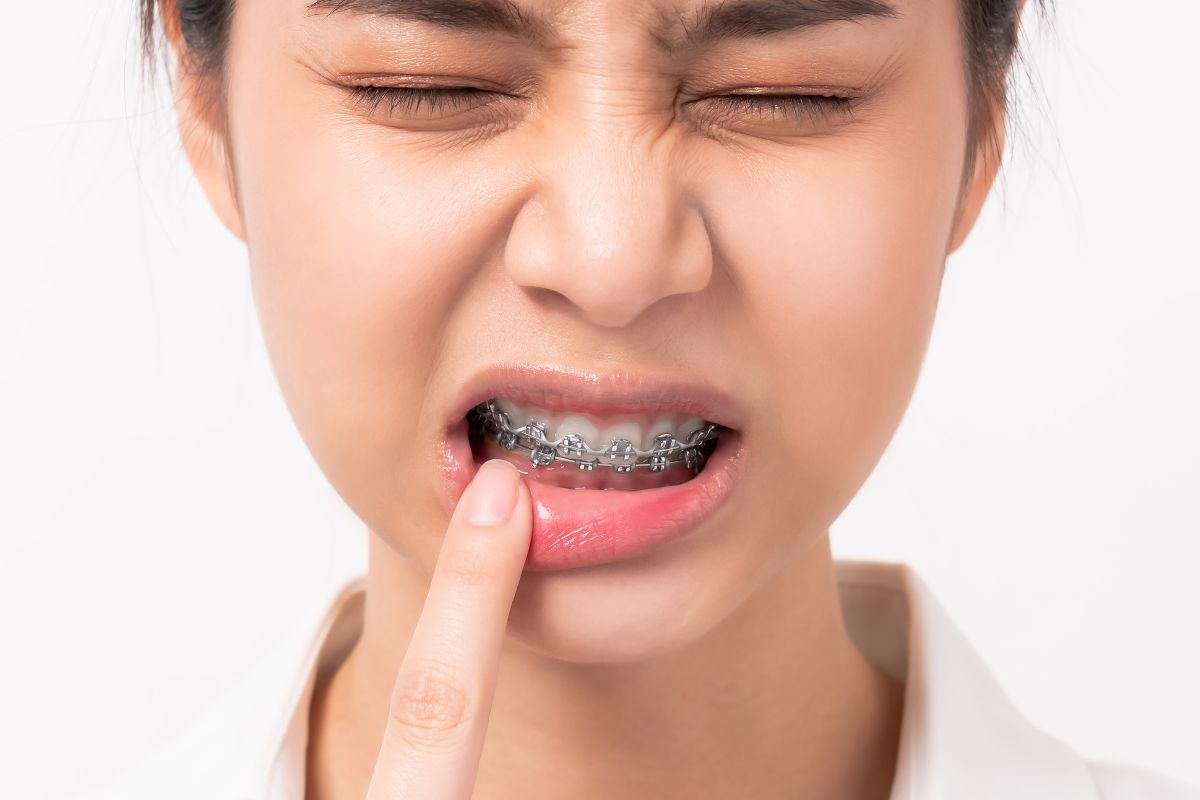Invisalign has revolutionized the field of orthodontics by offering a clear, removable alternative to traditional metal braces. This comprehensive guide will delve into the benefits of Invisalign, the causes of bad breath associated with its use, and provide practical prevention tips. Additionally, we'll share expert insights from top Boston orthodontics to help you make the most of your Invisalign treatment and maintain optimal oral health.
Key Takeaways
- Invisalign offers a discreet and convenient alternative to traditional braces, making it a popular choice in orthodontics.
- Maintaining good oral hygiene is crucial when using Invisalign to prevent bad breath and other oral health issues.
- Regular cleaning of Invisalign trays and routine dental check-ups are essential for effective treatment and fresh breath.
- Diet and lifestyle choices play a significant role in managing breath freshness while using Invisalign.
- Expert insights and innovations in Invisalign technology continue to improve the overall experience and outcomes for users.
Understanding Invisalign and Its Benefits
What is Invisalign and How Does It Work?
Invisalign is an orthodontic treatment technique that progressively shifts your teeth into the proper position by using a series of transparent, custom-made aligners. When worn, these aligners are nearly undetectable, making them a more discrete alternative to conventional braces.
Advantages of Choosing Invisalign Over Traditional Braces
- Invisibility: Invisalign’s most evident advantage is that it is almost undetectable. The transparent aligners are unobtrusive and will not draw attention to your orthodontic treatment.
- Comfort: Because Invisalign aligners are custom-made for your teeth, they are more comfortable to wear than conventional braces. They don’t have any rough edges or wires to harm your cheeks or gums.
- Removability: The aligners are removable, allowing you to maintain your regular oral hygiene routine and enjoy your favorite foods without any restrictions.
- Aesthetics: The aligners are nearly invisible, making them a popular choice for both teens and adults who are concerned about aesthetics.
The popularity of Invisalign in Boston Orthodontics

Invisalign has gained significant popularity in Boston orthodontics due to its numerous benefits. Many Boston orthodontists recommend Invisalign for its effectiveness and the convenience it offers to patients. The ability to maintain a normal lifestyle while undergoing treatment makes it a preferred choice among both teens and adults in the Boston area.
Causes of Bad Breath When Using Invisalign
Oral Hygiene Challenges with Invisalign
For some individuals wearing Invisalign aligners, bad breath or oral hygiene issues can be a concern. Invisalign aligners can trap food particles, leading to bad breath or compromising oral hygiene if not properly cared for. Maintaining good oral hygiene will not only keep your breath fresh but also contribute to the success of your orthodontic treatment.
The Role of Bacteria and Food Particles
Invisalign aligners can trap food particles and bacteria, which can lead to bad breath. It's essential to clean your aligners regularly to prevent the buildup of bacteria and food particles. Here are some tips to help you maintain fresh breath:
- Brush and floss your teeth after every meal before putting your aligners back in.
- Clean your aligners with a soft toothbrush and clear, unscented soap.
- Avoid eating or drinking anything other than water while wearing your aligners.
Impact of Dry Mouth on Breath Freshness
A dry mouth can also impact breath freshness when using Invisalign. Saliva helps to wash away food particles and bacteria, so a lack of saliva can lead to bad breath. To combat dry mouth, consider the following tips:
- Stay hydrated by drinking plenty of water throughout the day.
- Chew sugar-free gum to stimulate saliva production.
- Avoid caffeine and alcohol, as they can contribute to dry mouth.
Preventing Bad Breath with Invisalign
Effective Cleaning Techniques for Invisalign Trays
To maintain fresh breath with aligners, it's essential to clean your Invisalign trays properly. Here are some effective cleaning techniques:
- Rinse your aligners: Every time you remove your aligners, rinse them with lukewarm water to remove saliva and food particles.
- Brush your aligners: Use a soft-bristled toothbrush and clear, anti-bacterial soap to gently brush your aligners. Avoid using toothpaste as it can be abrasive.
- Soak your aligners: Soak your aligners in a cleaning solution specifically designed for Invisalign or in a mixture of water and vinegar for about 15 minutes daily.
- Avoid colored or scented soaps: These can leave residues and cause discoloration or bad taste.
Importance of Regular Dental Check-ups in Boston Orthodontics
Regular dental check-ups are crucial for preventing bad breath and ensuring the success of your Invisalign treatment. During these visits, your orthodontist can:
- Monitor your progress: Ensure that your teeth are moving as planned and make any necessary adjustments.
- Check for oral hygiene issues: Identify and address any potential problems such as cavities, gum disease, or plaque buildup.
- Provide professional cleaning: Remove any tartar or plaque that you might have missed during your daily cleaning routine.
Diet and Lifestyle Tips for Maintaining Fresh Breath

Your diet and lifestyle play a significant role in preventing bad breath with Invisalign. Consider the following tips:
- Stay hydrated: Drink plenty of water throughout the day to keep your mouth moist and wash away food particles and bacteria.
- Avoid strong-smelling foods: Foods like garlic, onions, and certain spices can contribute to bad breath.
- Chew sugar-free gum: This can help stimulate saliva production and keep your breath fresh.
- Limit sugary and acidic foods: These can promote bacterial growth and lead to bad breath.
- Quit smoking: Smoking can dry out your mouth and cause bad breath, among other oral health issues.
By following these oral health tips, you can effectively manage Invisalign's bad breath and maintain fresh breath with aligners.
Expert Insights on Invisalign and Oral Health
Recommendations from Boston Orthodontics Specialists
Specialists in Boston orthodontics emphasize the importance of maintaining excellent oral hygiene during Invisalign treatment. They recommend:
- Cleaning your aligners regularly to prevent plaque buildup.
- Brushing and flossing after every meal before reinserting the aligners.
- Using antibacterial mouthwash to reduce bacteria in the mouth.
Common Misconceptions About Invisalign and Bad Breath
There are several misconceptions about Invisalign and bad breath. Some believe that Invisalign inherently causes bad breath, but this is not true. Bad breath typically results from poor oral hygiene practices. Ensuring that both your teeth and aligners are clean can help prevent this issue.
Future Innovations in Invisalign Technology and Oral Health
The field of Invisalign technology is continuously evolving. Future innovations may include:
- Enhanced materials that resist bacterial buildup.
- Smart sensors in aligners to monitor oral health.
- Improved designs for better fit and comfort.
These advancements aim to make Invisalign treatment even more effective and beneficial for oral health.
Discover expert insights on Invisalign and oral health from top Boston orthodontics at Smilebar. Our VIP Diamond+ providers use cutting-edge 3D technology to ensure precise and efficient treatment. Ready to transform your smile?
Conclusion
Invisalign offers a modern and convenient solution for orthodontic treatment, providing numerous benefits over traditional braces. However, it is essential to be aware of the potential challenges, such as bad breath and oral hygiene issues, that can arise during treatment. By understanding the causes of these issues and implementing effective prevention strategies, you can maintain fresh breath and optimal oral health throughout your Invisalign journey. Regular dental check-ups with Boston Orthodontics, proper cleaning techniques, and mindful dietary choices are key to ensuring the success of your treatment. With expert insights and proactive care, you can achieve a beautiful smile while keeping your oral health in top condition.
Frequently Asked Questions
What is Invisalign and how does it work?
Invisalign is a clear aligner system used for orthodontic treatment. It works by gradually moving your teeth into their desired position using a series of custom-made, removable aligners.
What are the advantages of choosing Invisalign over traditional braces?
Invisalign aligners are virtually invisible, removable, and more comfortable than traditional braces. They allow for easier oral hygiene and fewer dietary restrictions.
Can Invisalign cause bad breath?
Yes, Invisalign can cause bad breath if proper oral hygiene is not maintained. Food particles and bacteria can get trapped in the aligners, leading to unpleasant odors.
How can I prevent bad breath while using Invisalign?
To prevent bad breath, clean your aligners regularly, maintain good oral hygiene by brushing and flossing, and stay hydrated to avoid dry mouth. Regular dental check-ups are also important.
Are there any dietary restrictions with Invisalign?
Unlike traditional braces, Invisalign allows you to eat most foods. However, it's important to remove your aligners while eating and to brush your teeth before putting them back in.
What should I do if my Invisalign aligners don’t fit properly?
If your aligners don’t fit properly, contact your Boston orthodontics immediately. Poorly fitting aligners can hinder your treatment progress and cause discomfort.
%202.svg)



